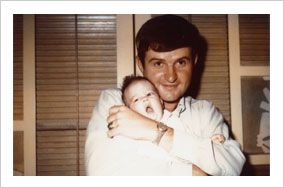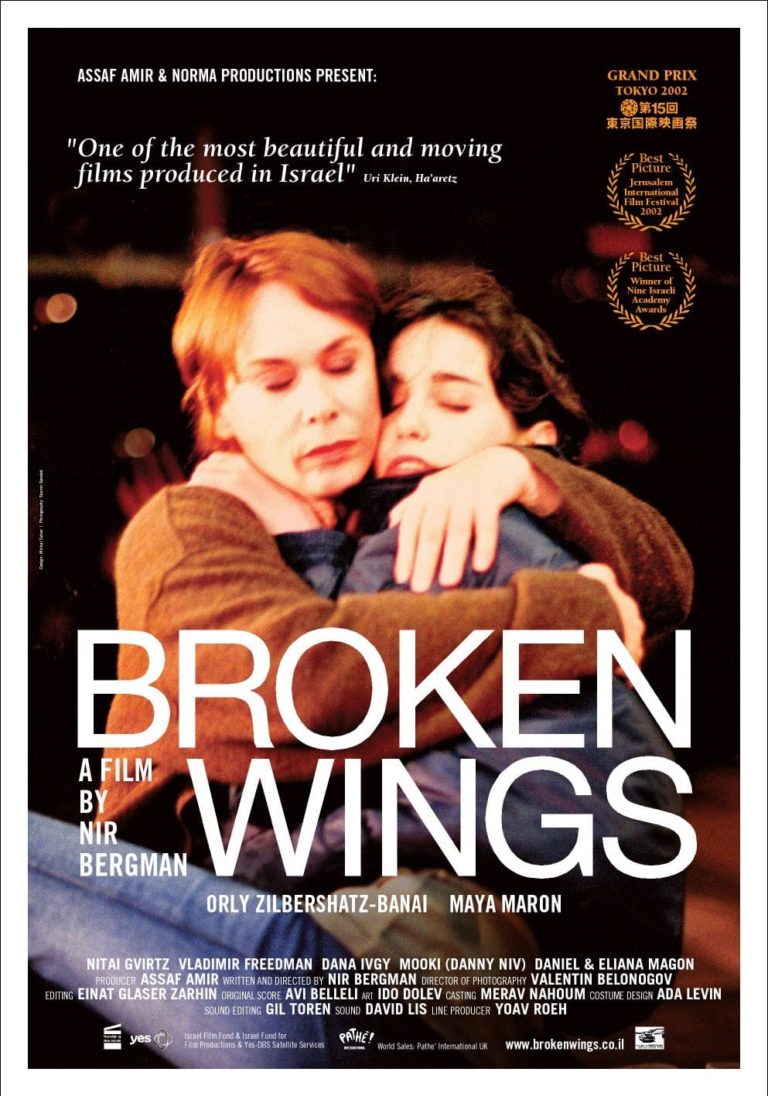On March 16, 2001, 32-year-old Tracy Droz Tragos typed her father’s name into Yahoo.com and hit ‘Search.’ Two and a half years later, the results of that search are chronicled in BE GOOD, SMILE PRETTY, a film that documents Tracy’s journey to find the father she lost in Vietnam. Lt. Donald Glenn Droz was 25 when he died; Tracy was three months old.
What she found on the Web that night was “Death of the 43,” a first-person, detailed account by a witness to an ambush in the Mekong Delta that destroyed a Navy swift boat and killed six men, including her father, Lt. Donald Glenn Droz. After waiting two days, Tracy called her mother to tell her of the article. Thus began a conversation between the two on film, with Tracy gently but insistently probing her mother, Judy Droz Keyes, to dredge up and piece together old memories and to flesh out and give life to the shadowy figure of her daughter’s dreams.
Together they open a long-buried trunk, examining the contents—photographs, champagne bottles, letters, home movies, audiotapes of phone conversations—like shards of pottery and artifacts from some ancient civilization. Who was this man? What was he like? What is his legacy? Many of his letters signed off with “Be good, smile pretty,” a closing which Tracy later came to view as something many people do in burying their grief rather than facing it.
Tracy’s film odyssey takes her from Berkeley, California to Rich Hill, Missouri, her father’s hometown, and then on to the United States Senate, the United States Naval Academy, the cotton fields of Selma, Alabama, suburban Illinois, New York City, Santa Rosa, California and places in between, to talk with relatives and her father’s comrades from Vietnam. These men (including Senator John Kerry of Massachusetts), now in their 50s and 60s, are the age her father would have been had he survived. Grappling with their own painful memories, they have stories they need to tell about her father, to make a connection, to provide missing pieces of the puzzle.
Haunting, evocative and moving, BE GOOD, SMILE PRETTY is a testament to the terrible loss that accompanies war, and the grief that continues to resonate for decades to come. But this time, Tracy has rewritten the ending to the story: “While I will always want more, one more second, one more breath, one more anything of him—for the first time in my life, I have just enough of him to remember and love and grieve. He would have been a great father. And when I smile, I have his eyes.”

